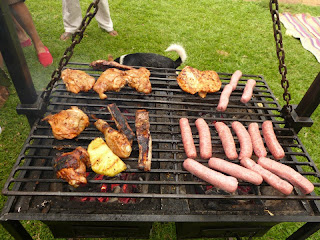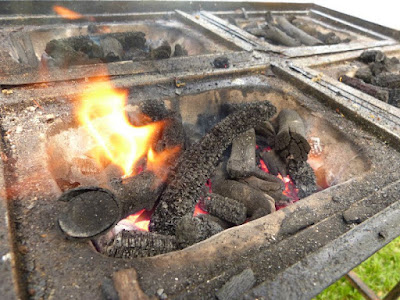Grow and make your own charcoal to cook wonderful food on high quality jikos at minimal cost with maximum returns!
With the new ''seed-to-ash'' biomass energy kiln and tree seed kit, you can easily grow your own money! Of course in the form of:
- Timber
- Posts
- Charcoal and firewood from the branches
- Live Fences
- Bio-Medicine (species specific)
A whole tree is far too valuable to just be turned into charcoal alone. We will always need trees for timber, to cook with and for their keystone ecosystem services - the least we can do when we use the trees we have grown, is to do so to their maximum value.
The following 3 steps is a brief guide to a simple field tested and market proven method of 100% self-reliance on an easy to grow fuel source; branch charcoal.
Step One 1: Plant and Grow Trees!!! - Our rule of thumb is that you will regret planting one less tree than one more tree 20 years from now. So grow more trees! :)
Step 2: Make the charcoal! With a Cookswell woodfuel independence kit (6,500ksh - small kiln, tree seeds http://cookswell.co.ke/our-products/category/kilns ) all you have to do is implement a rotational management forestry plan. You can easily prune your trees for branches and then carbonize them in your mini-kiln. The carbonization process to fill this mini-kiln takes 8 hours (appx. 7-9kgs). It also makes charcoal that is perfectly sized for an energy saving jiko.
 |
| Sealing off the kiln to cool |
The large charcoal making kiln below produces appx. 30kgs of charcoal per 8hours from 100kgs of wood/maize cobs/coconuts etc.
You can also trap the smoke and make wood vinegar and wood tar for on farm termite proofing!
You can also use your kiln to make your own Biochar as well from all sorts of woody biomass feedstocks.
Step 3: Buy a Cookswell Jiko and cook great food! Below are a few pictures of just some of our wonderful high quality jikos that are perfect for home or commercial use.
Portable catering at its best!
  |
| Impress you customers with our specialty animal shaped BBQs |
 |
| A large oven at a bakery (70,00ksh) |
 |
| Two medium ovens (left one is the safari model) a mini oven and a space heater |

































.JPG)

.JPG)



























